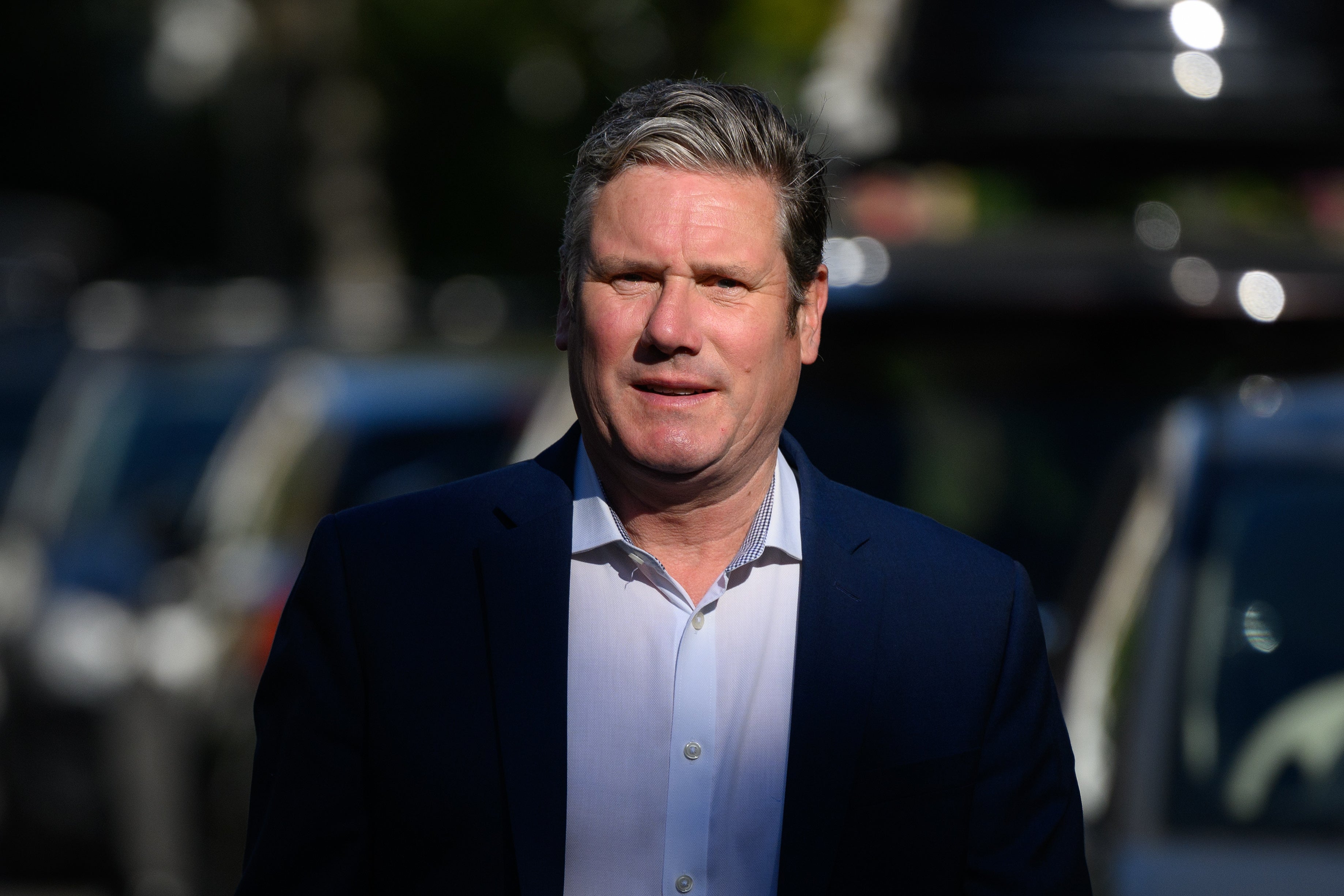Starmer in challenge to Labour left with vow to prioritise economic growth
Labour leader promises to ‘reboot the economy’ with ‘strong, secure, fair’ growth

Your support helps us to tell the story
From reproductive rights to climate change to Big Tech, The Independent is on the ground when the story is developing. Whether it's investigating the financials of Elon Musk's pro-Trump PAC or producing our latest documentary, 'The A Word', which shines a light on the American women fighting for reproductive rights, we know how important it is to parse out the facts from the messaging.
At such a critical moment in US history, we need reporters on the ground. Your donation allows us to keep sending journalists to speak to both sides of the story.
The Independent is trusted by Americans across the entire political spectrum. And unlike many other quality news outlets, we choose not to lock Americans out of our reporting and analysis with paywalls. We believe quality journalism should be available to everyone, paid for by those who can afford it.
Your support makes all the difference.Sir Keir Starmer will today put economic recovery at the heart of his pitch for the next general election, declaring that Labour’s priorities in government will be “growth, growth, growth”.
His comments are likely to act as a red rag to the left of his party, as he seeks to shake off the long-standing accusation that whereas Conservatives aim to increase the size of the pie, Labour is interested only in how it is shared out.
And he will confront environmentalist critics of the growth model, insisting that it is possible to increase the size of the economy without giving up on net zero carbon emission aspirations.
The Labour leader’s determination to fight the next general election on the battleground of economic growth is a signal of the extent to which Mr Starmer believes that the UK’s parlous condition allows him to challenge the Tories on their traditional home turf.
He will say that 12 years of moribund economic performance under Conservative-led governments has left the UK economy “weaker than its competitors, less resilient, brittle”.
As a result, Britain is more vulnerable than comparable nations to the current cost of living crisis and spiralling inflation.
But he is likely to infuriate those on the Labour left who fear that a concentration on growth will favour bosses, corporations and shareholders to the exclusion of more disadvantaged members of society.
Acknowledging that his approach represents a challenge to his party’s instincts, Mr Starmer will say: “It pushes us to care as much about growth and productivity as we have done about redistribution and investment in the past. Not to hark back to our old ideas in the face of new challenges.”
He will argue that “low-growth economies can’t rise to meet the challenges of the future”, including the threat of climate change.
And he will say: “We will not be distracted by the siren calls – from the right or the left – that say economic growth and net zero do not go together.”
Mr Starmer’s listing of “growth, growth, growth” as his top priorities seems a deliberate echo of Tony Blair’s battlecry of “education, education, education” in the run-up to the 1997 Labour landslide election.
Speaking in Liverpool ahead of this evening’s BBC debate between the contenders in a Tory leadership battle dominated by tax cuts and immigration, he will say that “rebooting our economy” will be the “defining task” of the next Labour government.
He will announce plans for an Industrial Strategy Council, established on a statutory footing as a “permanent part of the landscape that sets out strategic national priorities that go beyond the political cycle, holds us to account for our decisions and builds confidence for investors that will boost long-term growth and productivity”.
And he will say that there is “no task more central to my ambitions for Britain than making the country and its people better off”, adding: “This is why I am clear Labour will fight the next election on economic growth.”
Reviewing the last decade of economic performance, Mr Starmer will say: “Whether it’s the cost of living or recovering from the pandemic, our economy is weaker than its competitors. Less resilient. Brittle. And, ultimately, we are all poorer for it.”
By contrast, Labour would aim for a growth that is “strong, secure and fair”, maximising the contribution of all parts of society and all areas of the country, he will say.
“Strong, because it will build a foundation where every business and every person plays a role.
“Secure, because it will produce good jobs that don’t leave people feeling insecure.
“Fair, because it will unlock the potential of every place – every community, every town and every city.”
The issue of fairness “strikes at the structural weakness of our economy”, he will say, arguing that “an economy can grow and leave some if its people behind, but a nation based on contribution cannot grow in that way”.
Mr Starmer will accuse Tory leadership candidates Liz Truss and Rishi Sunak of relying on “magic-money-tree economics”.
Referring to Monday’s TV debate, he will say: “You will see a clear contrast between my Labour Party and the Thatcherite cosplay on display tonight.
“The difference between a Labour Party ready to take Britain forward and a Tory party that wants to take us back into the past. Between Labour growth and Tory stagnation.
“That will be the choice at the next election, and we are ready.”
Subscribe to Independent Premium to bookmark this article
Want to bookmark your favourite articles and stories to read or reference later? Start your Independent Premium subscription today.
Join our commenting forum
Join thought-provoking conversations, follow other Independent readers and see their replies
Comments